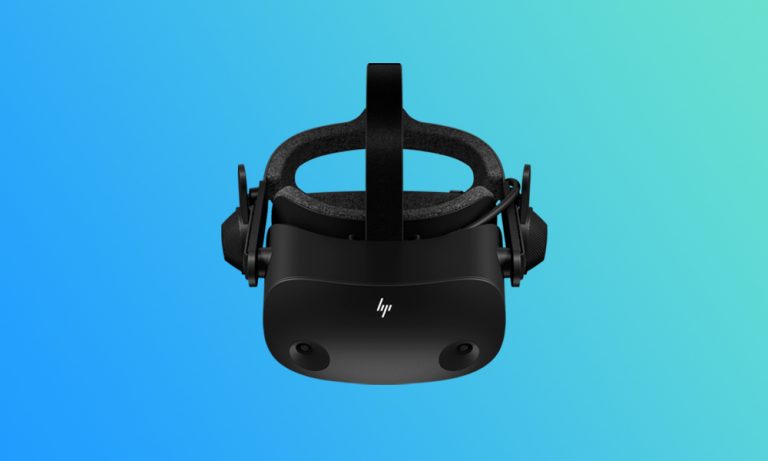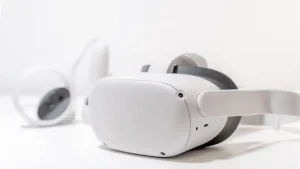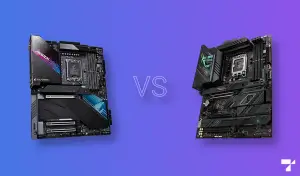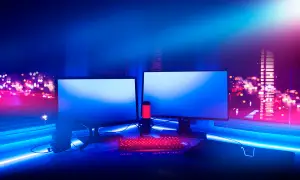Truth be told, it should be imperative for VR headset developers to be as accurate to the recommended requirements as HP did. A 4-core 8-thread Core i7 processor (presumably post-Skylake) with a Geforce GTX 1080. No other prior VR headset has ever gone more straightforward for its connected PC specs than this.
To be fair, there is the technical hindsight of being rather late to the game, so designers already know the ins and outs of VR headset hardware requirements. And architecture and generation-wise, we have a few more updated options in mind that could make the experience a bit more optimized. Including, of course, some of the higher-tiered system recommendations for the best VR experience from HP’s “technical” VR lineup.
How to Check Your Computer Specs
How to Check if Your Computer is VR Ready
Aside from comparing the relative performance of your individual CPU and GPU to systems that have been tested on actual VR games, you can also use several benchmarking tools to get a more quantitative measurement.
For example, the SteamVR Performance Test uses a 2-minute rendered in-game sequence, determining if your system can handle the resolution and can maintain the target 72 FPS throughout the brief session. Aside from a base performance chart and score, you will also get an assessment of which components are the bottlenecks, those that would require upgrades or replacement.
Other VR benchmarking tools available for the Oculus Quest and Quest 2:
- VRMark – more benchmark fine-tuning options, frame-by-frame analysis
- FCAT VR – Nvidia’s own VR benchmarking tool
- OpenVR – optimized for actual headset testing and community comparisons
Official website: hp.com/us-en/vr/reverb-g2-vr-headset.html
HP Reverb G1 and Reverb G2 System Requirements
(NOTE: There are no actual performance differences between the G1 and G2. Both have the same display specifications, only the tracking technologies are different. Thus, PC requirements are also exactly the same.)
Official minimum computer requirements for HP Reverb G1 and Reverb G2
| CPU | Intel Core i7 processor
AMD Ryzen 3 processor (equivalent) |
| GPU | NVIDIA GTX 1080
AMD Radeon Pro WX 8200 |
| Memory | 16GB+ RAM |
| OS | Windows 10, Windows 11 |
| USB Ports | 1x USB 3.0 port |
| Video Out | DisplayPort 1.3 |
Ideal minimum computer requirements for HP Reverb G1 and Reverb G2
Based on a combination of official minimum requirements (architecture/generation bump) and expected performance targeting per-eye 75+ FPS with 2160×2160 full resolution.
| CPU | AMD Ryzen 3 3300X (4C/8T, Zen 2)
Intel Core i3 12100(F) (4C/8T, 12th Gen Alder Lake) |
| GPU | NVIDIA Geforce RTX 2060 Super
AMD Radeon RX 5600 XT |
| Memory | 16GB+ RAM |
| OS | Windows 10, Windows 11 |
| USB Ports | 1x USB 3.0 port |
| Video Out | DisplayPort 1.3 |
Ideal recommended computer requirements for HP Reverb G1 and Reverb G2
Based on a combination of increased tiers for the official minimum requirements and expected medium to high performance targeting per-eye 80+ FPS with 2160×2160 full resolution.
| CPU | AMD Ryzen 5 5600 non-X (6C/12T, Zen 3)
Intel Core i5 12400(F) (6C/12T, 12th Gen Alder Lake) |
| GPU | NVIDIA Geforce RTX 3080
AMD Radeon RX 6800 XT |
| Memory | 16GB+ RAM |
| OS | Windows 10, Windows 11 |
| USB Ports | 1x USB 3.0 port |
| Video Out | DisplayPort 1.3 |
HP Reverb G1 and G2 Supported GPUs
This list show cards that can use the VR headset with reduced scaled resolutions, and those that can reliably play at full resolution. Anything below the GTX 1080 would have to be played at half-resolution, while those above can be potentially tweaked at full resolution. You can also lower the settings, of course. But with tight stable frame rate requirements, pixel density would be the single biggest factor for increased performance requirements that you can easily turn down.
Nvidia GPUs
- Nvidia Geforce GTX 10-series
- Nvidia Geforce GTX 16-series
- Nvidia Geforce RTX 20-series
- Nvidia Geforce RTX 30-series
- Nvidia Quadro RTX 8000/6000/5000/4000
- Nvidia Quadro P6000/P5000/P4000
- Nvidia Quadro M6000/M5000
- Nvidia Quadro Mobile RTX 6000/5000/4000/3000
- Nvidia Quadro Mobile P5200/P5000/P4200/P3200
- Nvidia Quadro M5000/M5500/K6000
- Nvidia Quadro Mobile M5500
AMD GPUs
- AMD RX 500 Series
- AMD RX 5000 Series
- AMD RX 6000 Series
- AMD Vega Series
- AMD Radeon VII
- AMD R9 Fury/Fury X
- AMD Radeon Pro WX 9100/8200/7100
- AMD Radeon FirePro W9100
- AMD Radeon Pro Duo/SSG
Final Thoughts
Much like the HTC Vive Cosmos and Vive Cosmos Elite, the difference between the HP Reverb G1 and Reverb G2 is all just sensor-related. Putting the G1 issue fixes aside, the number of tracking cameras for the Reverb G2 is doubled, with updated second-generation motion controllers being used, as well as the IPD range being increased a tiny bit. When it comes to external hardware requirements, you can treat the two headsets as one and the same thing.
As for that daunting 2160×2160 90Hz per-eye resolution… that is exactly the reason why HP didn’t pull any punches when it comes to dictating hardware requirements. As we saw with the HTC Vive Pro 2, anything going beyond 4K 60 FPS either requires a significantly beefier GPU to play, or a significantly reduced resolution scale for lower-end GPUs to run with.



